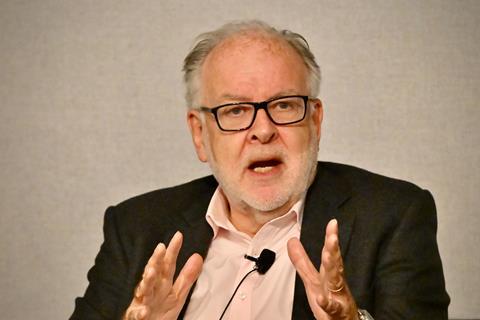Lord Falconer (pictured below) is nothing if not persistent. Ten years have passed since the former lord chancellor first introduced a bill in parliament to legalise assisted dying. His latest private member’s bill has picked up some safeguards along the way but it is still recognisably the measure Falconer has been trying to get through parliament for a decade.

The most noticeable difference is that it is now called the Assisted Dying for Terminally Ill Adults Bill. That is not a change of substance: Falconer’s 2014 bill also applied only to residents of England and Wales aged 18 and over. And a terminal illness is still defined as ‘an inevitably progressive condition which cannot be reversed by treatment’.
Crucially, the bill would not legalise euthanasia. Anyone who administers a life-ending substance would remain liable to prosecution, whether it is a doctor prescribing a deliberate overdose or a murderer poisoning a victim. But how do you guard against that happening?

The main change between Falconer’s first draft and the current bill is the involvement of the courts. This stems from an amendment moved by Lord Pannick KC during the original bill’s committee stage in 2014. The bill now says that ‘a person who is terminally ill may request and lawfully be provided with assistance to end their own life’ only if the High Court family division ‘confirms it is satisfied that the person has a voluntary, clear, settled and informed wish’ to do so.
Before obtaining a judge’s confirmation, the person must make a declaration in the presence of an independent witness. That must be countersigned by the medical practitioner from whom the person has requested assistance – ‘the attending doctor’ – and by a second, independent, medical practitioner. They must both be satisfied that the person is terminally ill and ‘has the capacity to make the decision to end their own life’.
Once the person has made a valid declaration and obtained the consent of the High Court, the attending doctor may prescribe approved ‘medicines’ that will enable the person to take their own life. Normally, there will be a cooling-off period of two weeks. If death is reasonably expected to occur within one month of the court granting consent, the wait is reduced to six days.
A health professional may prepare the medicine for the person to take or prepare a medical device that the person can use. A person can be helped to ingest or otherwise self-administer the medicine. But the decision to self-administer the medicine and the final act of doing so must be taken by the person for whom the medicine has been prescribed.
As you would expect, anyone who provides any assistance in accordance with the legislation will no longer be committing a crime. A person ‘who is in breach of the requirements of this act, save for acts or omissions in good faith and without negligence, will be guilty of a criminal offence’ punishable with up to 14 years’ imprisonment. But that clause, which was not in the version of Falconer’s bill introduced by Baroness Meacher in 2021, needs further work. It does not specify the acts that attract criminal liability.
The bill creates several more criminal offences. One involves false declarations. Others apply to a person who, ‘dishonestly or by coercion’, induces another person to self-administer life-ending medication or to make, or revoke, a request for assistance. If committed with the intention of causing a death, the maximum penalty is life imprisonment.
Because the bill applies only to those who are terminally ill, it will remain an offence to assist in the suicide of anyone with a disability or incurable illnesses –Huntington’s disease, for example, or locked-in syndrome – who is not reasonably expected to die within six months.
Those accused of assisting suicide may avoid being charged if prosecutors decide that criminal proceedings would not be in the public interest. But Alexa Payet, a partner at the solicitors’ firm Michelmores, points out that any inheritance they might receive could be at risk unless an order is made under the Forfeiture Act 1982. Public policy has long precluded benefiting from a death that one helped cause.
Falconer is well aware that a bill such as his cannot become law without government support. Sir Keir Starmer said last month that the government would provide time for a private member’s bill to be debated in the Commons and he would allow a free vote. But it is clearly not a government priority.
Unlike previous versions, Falconer’s latest bill does not include a ‘sunset clause’ permitting repeal by resolution. But there are other safeguards: a conscience clause, codes of practice, a review after five years and a two-year implementation period.
I am sure these are intended to reassure those with misgivings. To me, they demonstrate just what a momentous change legalising assisted dying would be.
joshua@rozenberg.net































4 Readers' comments